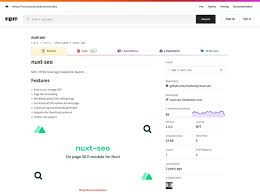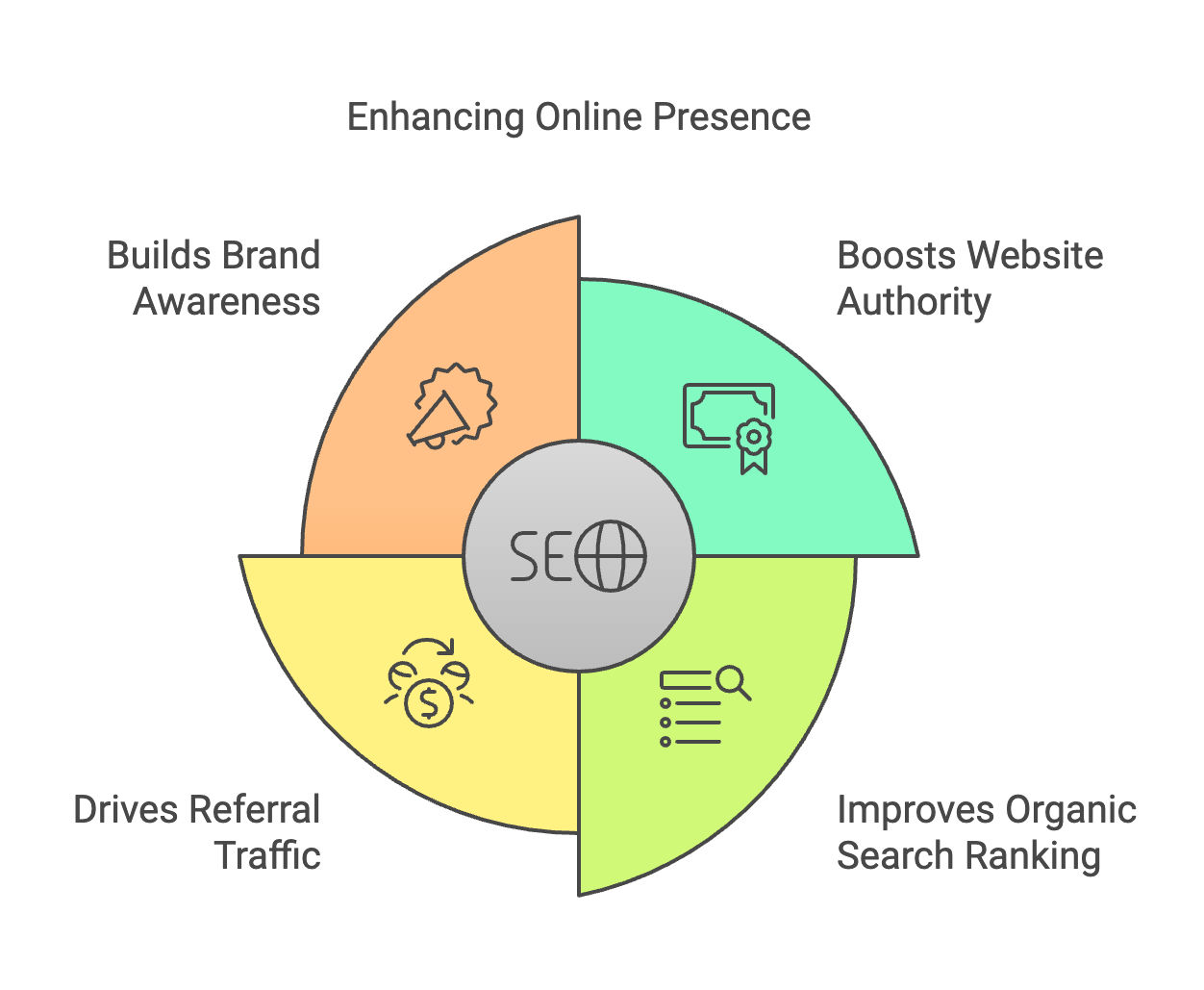The Importance of SEO for Nuxt.js Websites
Nuxt.js is a powerful framework for building Vue.js applications. While Nuxt.js offers many benefits for web development, such as server-side rendering and static site generation, it’s essential to consider search engine optimization (SEO) when creating websites with Nuxt.js.
SEO plays a crucial role in ensuring that your website ranks well in search engine results pages (SERPs) and drives organic traffic to your site. Here are some key reasons why SEO is important for Nuxt.js websites:
Improved Visibility
By optimizing your Nuxt.js website for search engines, you can improve its visibility online. This means that your website is more likely to appear in relevant search results when users are looking for information related to your products or services.
Higher Ranking
Effective SEO practices can help boost your website’s ranking on search engine results pages. Higher rankings lead to increased visibility and credibility, making it more likely that users will click through to your site.
Enhanced User Experience
SEO involves optimizing various aspects of your website, such as page speed, mobile-friendliness, and user experience. By focusing on these elements, you can create a better overall experience for visitors to your Nuxt.js site, leading to higher engagement and conversions.
Competitive Advantage
In today’s competitive online landscape, having a well-optimized website can give you a significant advantage over competitors who neglect SEO. By implementing SEO best practices for your Nuxt.js site, you can stay ahead of the competition and attract more organic traffic.
Long-Term Results
SEO is a long-term strategy that can deliver sustainable results over time. By consistently optimizing your Nuxt.js website for search engines and monitoring performance metrics, you can continue to improve your online presence and reach a broader audience.
In conclusion, incorporating SEO best practices into your Nuxt.js website development process is essential for maximizing its visibility, ranking, user experience, and overall success online. By prioritizing SEO from the outset, you can create a strong foundation for attracting organic traffic and achieving your business goals.
9 Essential Nuxt SEO Tips to Boost Your Website’s Visibility
- Utilize Nuxt’s built-in features for SEO such as automatic sitemap generation.
- Optimize meta tags including title, description, and keywords for each page.
- Ensure proper usage of heading tags (h1, h2, etc.) to structure your content.
- Make use of Nuxt’s asyncData or fetch method to fetch data server-side for better SEO.
- Implement schema markup to provide search engines with more information about your content.
- Optimize images by using descriptive filenames and alt text attributes.
- Improve page speed by leveraging Nuxt’s built-in features like code-splitting and lazy loading.
- Create SEO-friendly URLs that are concise and include relevant keywords.
- Regularly monitor your site’s performance using tools like Google Search Console and make necessary adjustments.
Utilize Nuxt’s built-in features for SEO such as automatic sitemap generation.
To enhance the search engine optimization (SEO) of your Nuxt.js website, it is highly beneficial to take advantage of Nuxt’s built-in features, such as automatic sitemap generation. By utilizing this feature, you can ensure that search engines can easily crawl and index all the pages on your site, improving its visibility and ranking in search results. Automatic sitemap generation simplifies the process of organizing and presenting your website’s content to search engine bots, ultimately helping to boost your site’s SEO performance and attract more organic traffic.
Optimize meta tags including title, description, and keywords for each page.
Optimizing meta tags, including the title, description, and keywords, for each page of your Nuxt.js website is a crucial aspect of SEO strategy. The title tag serves as the headline that appears in search engine results, while the meta description provides a brief summary of the page’s content. By crafting compelling and relevant meta tags for each page, you can enhance visibility in search results and attract more organic traffic. Additionally, incorporating targeted keywords into your meta tags can help search engines understand the context and relevance of your content, ultimately improving your site’s ranking and click-through rates.
Ensure proper usage of heading tags (h1, h2, etc.) to structure your content.
Ensuring proper usage of heading tags, such as h1, h2, etc., is crucial for structuring your content effectively and optimizing it for search engines on Nuxt.js websites. By using heading tags correctly, you not only improve the readability and organization of your content for users but also help search engine crawlers understand the hierarchy and importance of different sections on your page. This practice can enhance the overall SEO performance of your website by signaling key topics and keywords to search engines, ultimately increasing the likelihood of your content ranking higher in search results.
Make use of Nuxt’s asyncData or fetch method to fetch data server-side for better SEO.
To enhance the SEO performance of your Nuxt.js website, it is advisable to leverage Nuxt’s asyncData or fetch method to retrieve data server-side. By utilizing these methods, you can ensure that essential content is rendered and available to search engine crawlers during the initial page load. This server-side data fetching approach not only improves the overall SEO-friendliness of your site but also contributes to faster loading times and better user experience, ultimately leading to higher search engine rankings and increased organic traffic.
Implement schema markup to provide search engines with more information about your content.
Implementing schema markup is a valuable tip for enhancing the SEO of your Nuxt.js website. By incorporating schema markup, you provide search engines with additional information about your content, such as product details, reviews, events, and more. This structured data helps search engines better understand the context of your content, leading to improved visibility and higher chances of appearing in rich snippets and other enhanced search results. By leveraging schema markup effectively, you can optimize your website for better search engine rankings and attract more targeted organic traffic to your site.
Optimize images by using descriptive filenames and alt text attributes.
Optimizing images is a crucial aspect of SEO for Nuxt.js websites. By using descriptive filenames and alt text attributes, you can improve the accessibility and relevance of your images to search engines. Descriptive filenames not only help search engines understand the content of the image but also provide valuable context for users with screen readers. Alt text attributes serve a similar purpose by describing the image to users who may not be able to see it. By incorporating these practices into your image optimization strategy, you can enhance the overall SEO performance of your Nuxt.js website and provide a better user experience for all visitors.
Improve page speed by leveraging Nuxt’s built-in features like code-splitting and lazy loading.
Improving page speed is crucial for optimizing SEO performance on Nuxt.js websites. One effective tip to enhance page speed is to leverage Nuxt’s built-in features like code-splitting and lazy loading. By utilizing these features, you can efficiently manage the loading of resources on your website, ensuring that only essential content is loaded initially, while deferring the loading of non-essential content until it’s needed. This not only helps improve user experience by reducing load times but also signals search engines that your site is fast and responsive, ultimately boosting its SEO rankings.
Create SEO-friendly URLs that are concise and include relevant keywords.
When optimizing your Nuxt.js website for search engines, it is crucial to create SEO-friendly URLs that are both concise and include relevant keywords. By incorporating targeted keywords into your URLs, you can improve the visibility of your web pages in search engine results and make it easier for users to understand the content of each page at a glance. Concise URLs not only enhance the user experience but also make it simpler for search engine crawlers to index and rank your website effectively. Therefore, crafting SEO-friendly URLs with relevant keywords is a fundamental step in enhancing the overall SEO performance of your Nuxt.js site.
Regularly monitor your site’s performance using tools like Google Search Console and make necessary adjustments.
Regularly monitoring your Nuxt.js website’s performance using tools like Google Search Console is crucial for effective SEO management. By analyzing key metrics such as search traffic, indexing status, and click-through rates, you can gain valuable insights into how your site is performing in search engine results. Identifying areas that need improvement and making necessary adjustments based on this data can help enhance your site’s visibility, user experience, and overall SEO effectiveness over time. Consistent monitoring and optimization are essential for maintaining a strong online presence and driving organic traffic to your Nuxt.js website.




